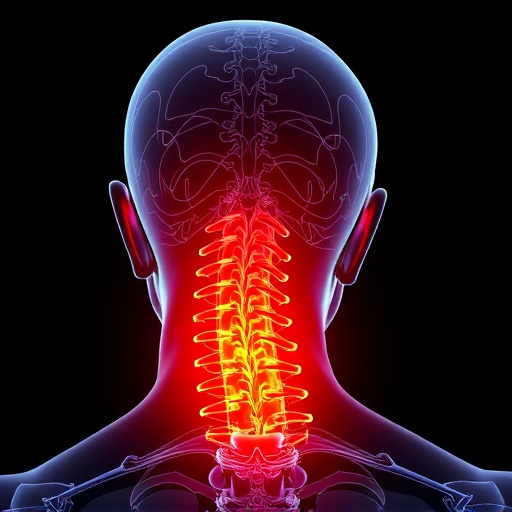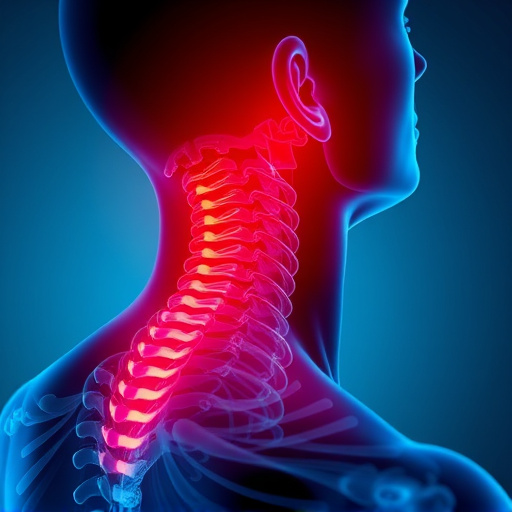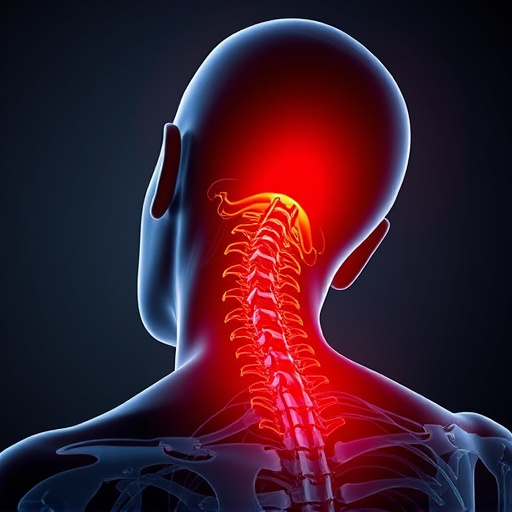Repetitive Strain Injury (RSI) is managed by chiropractors through non-invasive treatments like spinal adjustments and joint manipulation, focusing on musculoskeletal alignment and nerve function improvement. Initial assessments discuss work habits, daily activities, and symptoms, followed by a physical exam. Chiropractors provide immediate relief, educate patients on ergonomic principles, and guide activity modifications to prevent further injury.
Repetitive strain injury (RSI) is a common condition affecting millions, caused by prolonged repetition of similar movements. While often managed through rest and therapy, many seek alternative treatments like chiropractic care. This article explores if a chiropractor can help with RSI, delving into the condition’s understanding, exploring chiropractor care options, and discussing effective treatment approaches for symptom relief and recovery.
- Understanding Repetitive Strain Injury (RSI)
- Chiropractor Care for RSI Symptoms
- Effective Treatment Approaches for RSI
Understanding Repetitive Strain Injury (RSI)

Repetitive Strain Injury (RSI) is a common condition characterized by pain and discomfort resulting from repetitive tasks or sustained positions. It’s often associated with overused muscles, tendons, and nerves due to activities like typing, texting, or repetitive manual labor. RSI can manifest in various parts of the body, including wrists, elbows, shoulders, and back. This injury isn’t just a temporary nuisance; it can lead to chronic pain if left unaddressed.
Chiropractors play a crucial role in managing and treating RSI through non-invasive methods like spinal adjustments and joint manipulation. They focus on improving nerve function, reducing muscle tension, and promoting overall wellness care. For individuals recovering from auto accidents, chiropractors are valuable partners, offering specialized care to alleviate pain and improve mobility, which is essential for a complete recovery.
Chiropractor Care for RSI Symptoms

Chiropractor care offers a non-invasive approach to managing repetitive strain injury (RSI) symptoms. Chiropractors focus on the musculoskeletal system, believing that proper alignment and function are key to overall health. For individuals suffering from RSI, this can mean relief from pain and discomfort associated with overused or stressed muscles, tendons, and joints. A chiropractor’s initial assessment will involve a detailed discussion about your work habits, daily activities, and specific symptoms, followed by a physical examination to identify areas of concern.
One of the primary tools in a chiropractor’s arsenal is the spinal adjustment, which can help alleviate pressure on nerves compressed by misaligned vertebrae, potentially contributing to RSI. In conjunction with this, they may also offer guidance on ergonomic improvements, exercise routines, and stretching techniques to reduce strain and promote joint pain relief. By addressing these underlying issues, chiropractors aim to not only provide short-term symptom relief but also empower patients with strategies for long-term prevention of repetitive strain injury.
Effective Treatment Approaches for RSI

Repetitive Strain Injury (RSI) is a common condition characterized by pain and discomfort in the arms, hands, neck, or back, often resulting from repetitive movements or prolonged periods of tension. Effective treatment for RSI involves a multifaceted approach tailored to address the root causes and alleviate symptoms.
Chiropractors play a significant role in managing RSI through various techniques. One key method is manual therapy, which includes spinal adjustments and joint mobilizations to restore mobility and reduce inflammation. Chiropractors also prescribe therapeutic exercises targeted at strengthening muscles and improving posture, providing much-needed pinched nerve relief. Additionally, they educate patients on ergonomic principles and provide guidance on modifying activities to prevent further injury during the rehabilitation process.
A chiropractor can play a significant role in managing and alleviating symptoms of repetitive strain injury (RSI). By combining manual adjustments, soft tissue therapy, and ergonomic guidance, chiropractors offer a holistic approach to RSI treatment. Effective management involves addressing the root causes rather than merely treating symptoms, which is why exploring chiropractic care as part of your rehabilitation plan can be beneficial. With the right treatment approaches, it’s possible to reduce pain, improve function, and prevent further injury associated with RSI.














